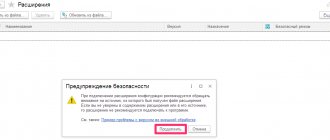As you know, Pension Fund employees often held employers accountable for completing the SZV-M form. However, from 2021, judicial practice on this issue should change dramatically in favor of employers. We talk about the prerequisites for this and give examples of new judicial acts, the subject of which was a fine for supplementary SZV-M.
Also see:
- When to take SZV-M in 2021: table
- Copies of SZV-M to employees in 2021: issuance
Addendum SZV-M
According to the resolution of the Board of the Pension Fund of Russia dated 01.02.2016 No. 83p, which approved the SZV-M form “Information on insured persons”, in its paragraph (section) 3 it is necessary to indicate the code that corresponds to its type.
So, “additional” means that it is a complementary form. It is submitted in order to supplement the information previously accepted by the Pension Fund about insured persons for a given reporting period (month).
There are no other rules governing the delivery of the supplementary SZV-M. This is also why numerous disputes arose between policyholders and the Pension Fund.
The situation for all employers is approximately the same. The first form SZV-M was submitted on time. After some time, the employer finds the “forgotten” employees and submits a supplementary report. But the Pension Fund of the Russian Federation believes that the reports regarding these employees were submitted untimely.
Reasons and principles of compilation
Since 2021, a rule has been in effect according to which the completed form is sent to the Pension Fund of the Russian Federation by enterprises and individual entrepreneurs using hired labor. This happens monthly.
An important role is played by compliance with a period of time equal to 15 days , which must be counted from the end of the reporting period. If incorrect data is entered, a fine will be imposed. If you discover errors yourself, punishment can be avoided.
There are several situations when the SZV-M clarifying form is mandatory.
- An enterprise or individual entrepreneur, in the process of registering data according to the appropriate template, forgot to reflect information about employees. In this case, the supplementary form will be drawn up exclusively for those hired persons for whom data is not available in the main version of the document. The report requires reflection of their names, surnames, SNILS, INN. Repetition of information about employees included in the primary document is not required.
- Acceptance of erroneous information in the TIN number in the process of filling out the form. In order to correct the submitted information, it is necessary to generate a cancellation report in which duplication of errors occurs. At the next stage, a supplementary document is submitted containing updated data on a specific hired specialist.
- Difficulties arise in the process of filling out information on SNILS numbers or irrational entry of one number for a specific employee. In this case, the verification protocol may turn out to be negative. In this case, the form submitted for the category of employees for whom inaccuracies were made will help. If the protocol implies a refusal to accept the document in its entirety, the report is generated anew, and it is considered the original one.
What to refer to
From 2021, if the territorial body of the Pension Fund, when adopting the supplementary SZV-M, hints at a fine, then you can safely refer to Art. 11 and 17 of the Federal Law of 01.04.1996 No. 27-FZ “On individual (personalized) accounting in the compulsory pension insurance system” (hereinafter referred to as Law No. 27-FZ).
The bottom line is that the policyholder’s independent identification of an error, which was subsequently corrected, before it was discovered by the Fund, by submitting corrected information (SZV-M with the “additional” type), indicates the possibility in this case not to apply appropriate financial sanctions to the policyholder.
For failure by the policyholder to submit within the prescribed period or submission of incomplete and/or unreliable information to SZV-M, they may be fined 500 rubles in relation to each insured person (i.e., a “forgotten” employee) on the basis of Part 3 of Art. 17 of Law No. 27-FZ.
In December 2021, policyholders were able to cancel fines for the addition of SZV-M in the cassation arbitration courts of several districts. In addition, the Supreme Court of the Russian Federation did not .
Thus, since 2021, the practice has turned in favor of employers: the fine for independently adding SZV-M is unlawful .
ADVICE
If the Pension Fund of Russia has fined you for late submission of reports on employees who were “forgotten” in the initial SZV-M form, you can safely go to court. The likelihood of the fine being canceled is very high . Moreover, this is a trend, and not random decisions in judicial practice.
How to avoid punishment
Almost all employees make mistakes from time to time, but a few tips on how to avoid punishment under Article 15.33.2 of the Code of Administrative Offenses of the Russian Federation will help minimize their number:
- Don't wait until the last day to report. If you submit it before the end of the deadline, then the noticed error can be easily corrected without any consequences by sending a correction form to the Pension Fund. In addition, this will save you from failure to accept information on time due to various types of technical faults.
- Even if an error is discovered after the 15th, corrections must be made. Organizations that independently corrected errors in the SZV-M before they were discovered by the Pension Fund are not held accountable and do not face a fine for failure to submit the SZV-M. This rule is recorded in paragraph 40 of the instructions, approved by order of the Ministry of Labor No. 211n dated April 22, 2020. True, PFR employees do not take this into account, and the organization has to prove its case in court.
- If a violation has already been recorded by the Pension Fund of Russia, its employees must draw up a report. It should be carefully studied and explanations and objections regarding the violation should be sent to the fund in writing. It is possible that they will be taken into account and will not be held accountable.
Examples of judicial acts
One of the fundamental decisions that actually cancels the fine for supplementary SZV-M is the ruling of the Supreme Court of the Russian Federation of December 20, 2021 No. 306-ES19-23114. Here is the official link to its full text.
In addition, the decision of the arbitration court will help you pass the supplementary SZV-M in 2021 without a fine:
- Far Eastern District dated December 13, 2019 in case No. A37-1648/2019;
- West Siberian District dated December 17, 2019 in case No. A45-16549/2019;
- Ural District dated December 19, 2019 in case No. A07-9848/2019;
- Central District dated December 11, 2019 in case No. A83-16224/2018.
Read also
23.04.2020
Additional compensation for early dismissal in case of staff reduction is not subject to contributions
The essence of the dispute
As is known, insurance premiums are not charged for compensation payments established by the legislation of the Russian Federation, legislative acts of the constituent entities of the Russian Federation, decisions of representative bodies of local self-government related to the dismissal of employees (Article of the Law of July 24, 2012 No. 212-FZ, Article 422 of the Tax Code of the Russian Federation). The exception is, in particular, payments in the form of severance pay and average monthly earnings for the period of employment in a part exceeding in general three times the average monthly salary of the employee or six times the amount for workers dismissed from organizations located in the Far North and equivalent areas .
The PFR branch in the Omsk region stated that this limit (that is, three or six times the average monthly salary) also includes additional compensation for the early dismissal of an employee who was notified of dismissal due to staff reduction. Let us remind you that in accordance with Article 180 of the Labor Code of the Russian Federation, the employer is obliged to warn the employee about dismissal due to the liquidation of the company, reduction in headcount or staff at least two months in advance. With the consent of the employee, employment relations with him may be terminated before this period. In this case, the employee is paid additional compensation in the amount of average earnings. It is calculated in proportion to the time remaining before the expiration of the notice of dismissal.
Guided by this norm, the organization paid the laid-off employee severance pay, average monthly earnings for the period of employment, as well as additional compensation for early dismissal. According to the controllers, since the total amount of payments exceeded three times the average monthly earnings, contributions should have been calculated for the excess amount.
The court's decision
The court found this position to be erroneous. The total amount of payments was calculated taking into account additional compensation paid in the event of termination of an employment contract with an employee before the expiration of the notice period. Meanwhile, payments exempt from contribution in a total amount not exceeding generally three times (or six times) the average monthly earnings include only the severance pay itself, paid in connection with staff reduction, as well as the average monthly earnings for the period of employment. As for additional compensation for early dismissal, it does not apply to the amounts of severance pay, which are not subject to contributions only in the part not exceeding, in general, three times the average monthly salary.
Consequently, the company rightfully did not include these payments in the base subject to insurance premiums (Resolution of the AS of the West Siberian District dated 02.02.18 No. A46-8955/2017).
From the editor
In support of its position, the court, among other things, referred to letters from the Ministry of Finance dated 03.21.17 No. 03-15-06/16239, dated 07.31.17 No. 03-04-07/48592. These letters also clarified: additional compensation provided for by labor legislation for early termination of an employment contract due to staff reduction or liquidation of an organization is not subject to insurance premiums in full (see “Additional compensation for early dismissal of an employee notified of layoffs is not subject to personal income tax and contributions").
New fine from 2021
Now let's clarify what fine for SZV-M is charged if the generally accepted reporting form is violated. All companies, regardless of the type of organization, are required to submit a report to the Pension Fund.
The only thing that matters here is the number of people. If the company employs 24 people, then the report can be submitted in paper form. If the number of staff exceeds 25 people, you do not have the right to submit a paper form. In this case, an electronic document is submitted, which is secured with a digital signature.
If you mix up the reporting form (instead of the electronic paper one), you will be fined 1000 rubles. In 2021, this amount was only 200 rubles. For example, if your company employs 26 people, and you decide for your own convenience to submit a report in paper form, you will definitely receive a fine. Information on the number of staff is reflected by you on the form, and therefore representatives of the fund will be able to see the discrepancies immediately.
If the working day is shortened by only 24 minutes, child care benefits are not due
The essence of the dispute
According to inspectors from the Social Insurance Fund, the organization illegally paid child care benefits for children up to one and a half years old to part-time employees. The reason is that working hours were reduced by only 8 hours per month, with wages being paid in proportion to the time worked. The reduction of working hours by 24 minutes per day is formal in nature and was carried out in order to unreasonably receive benefits in addition to full earnings.
The court's decision
The court agreed with the fund, pointing out the following. The right to receive a monthly allowance has the child’s parent or other relative who is actually caring for the child (Article 1, Federal Law No. 165-FZ dated July 16, 1999). When working hours are reduced by 24 minutes, the working parent is unable to provide actual daily child care. Thus, the payment of child care benefits for a child up to one and a half years old in the described situation is unlawful (Resolution of the Administrative District of the East Siberian District dated February 28, 2018 No. A33-5616/2017).
Preparing an objection to a fine
The actions of the fund may not always be legal: the human factor plays a role here. Therefore, sometimes fines have no real justification. In such cases, everything will be decided by the court, and in order to rely on its competence, it is necessary to file a claim.
To draw up your objection to the actions of the insurance fund employees, we recommend following the following sequence of actions:
- First, read what the fund indicated in the inspection report. If you ignore this document, you will not be able to sue;
- Analyze the validity of the requirement to pay a fine for errors to the fund (if the data is unreliable, then collect all the necessary evidence that will confirm this);
- In your objection, indicate your arguments in favor of canceling/reducing the fine, and also do not forget to attach the report itself;
- Submit your completed objection to the court for consideration.
You can write off expenses for pots and dishwashing supplies only if your organization has a kitchen.
The essence of the dispute
The organization purchased pots, as well as dishwasher and washing machine supplies to clean the bathroom. The taxpayer stated that these costs are aimed at ensuring normal working conditions. This means that their cost can be taken into account in expenses on the basis of subparagraph 7 of paragraph 1 of Article 264 of the Tax Code. In addition to the goods mentioned above, the organization also wrote off the costs of cosmetics (milk and body lotions, deodorants).
However, the inspection inspected the premises and found out that there were no premises for eating, as well as pots and household appliances, on the territory of the organization. As a result, the inspectors removed the expenses and assessed additional income tax.
The court's decision
The organization went to court. According to the taxpayer, since the costs of purchasing goods are confirmed, the inspector’s decision is unlawful. But the courts of three instances refused to support the organization. The judges recalled the general rules for recognizing expenses. Thus, according to the provisions of Article 252 of the Tax Code of the Russian Federation, when taxing profits, documented and justified costs are taken into account. In this case, expenses for body milk, lotions, and deodorants are not related to the activities of the taxpayer. Specially equipped premises for eating, in which there is equipment for cooking, in particular, pots, were not found. Thus, these costs were included in the expenses list unlawfully (Resolution of the Autonomous District of the Ural District dated 02.02.18 No. F09-8770/17).
We pay the fine
If you still have to pay a fine, then check the details for transferring funds to the insurance fund. To understand where to pay the amount, contact the fund at the place of registration of the company.
The form with the details must contain the following information:
- Full name of the fund;
- TIN and checkpoint of the state structure;
- Name of the bank in which the current account operates;
- 20 account digits;
- BIC, OKTMO, cor./account;
- KBK (the fine is transferred according to a numerical value, the same for all regions);
- Purpose of the transfer (indicate the month for which the reports with errors were submitted, the year, as well as the number of the form in the fund database).
The accrual and payment of the fine must be shown on the company's balance sheet.
Postings for SZV-M fines will look like this.
| D-t | Kit | Amount, rub. | Operation |
| 99.01 | 69.02.07 | 3000 | The fine was taken into account |
| 69.02.07 | 51 | 3000 | The fine has been paid |




